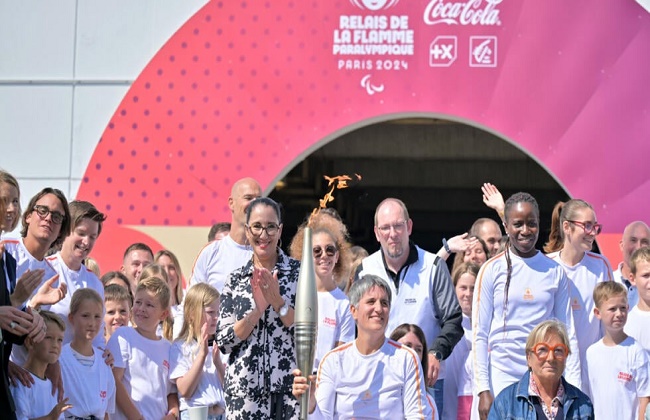
The Paris Paralympics begin on Wednesday with a spectacular opening ceremony in a city still on a high after the highly successful Olympics.
A new generation of Paralympians will join seasoned veterans competing in many of the same venues that hosted Olympic sports.
A total of 18 of the 35 Olympic venues will be used for the Paralympics, which run until September 8, including the Grand Palais which scored rave reviews for its hosting of the fencing and taekwondo under an ornate roof.
The La Defense Arena is back as well, hosting the 141 gold-medal events in para-swimming, as is the Stade de France where track and field again takes place.
The Games will open with a ceremony in Place de la Concorde, the square in the centre of Paris where skateboarding and other ‘urban’ sports took place during the Olympics.
Just as for the Olympics ceremony on the River Seine, the ceremony takes place away from the main stadium for the first time at a Paralympics.
The Paralympic flame was lit at Stoke Mandeville hospital in England, the birthplace of the Games, and brought to France through the Channel Tunnel.
Theatre director Thomas Jolly, who also oversaw the Olympics opening ceremony, said there was a deep symbolism in putting the Paralympics ceremony in the centre of the French capital — a city whose Metro system, in particular, is completely unadapted to the needs of wheelchair users.
“Putting Paralympic athletes in the heart of the city is already a political marker in the sense that the city is not sufficiently adapted to every handicapped person,” Jolly said.
Organisers say Paris buses, in contrast, are wheelchair-friendly and they have laid on 1,000 specially adapted taxis as well.
Sluggish ticket sales have picked up since the Olympics and organisers say more than 1.9 million have now been sold.
Every Games creates new stars, and this edition will be no exception, so look to American above-the-knee amputee sprinter/high jumper Ezra Frech, who at 19 has already attracted a burst of publicity about his journey to Paris.
More familiar names return too — British amputee sprinter Jonnie Peacock was one of the highest-profile athletes of London 2012 and dusted off his running blade last year to make a comeback in his bid to win a medal at a fourth consecutive Paralympics.
